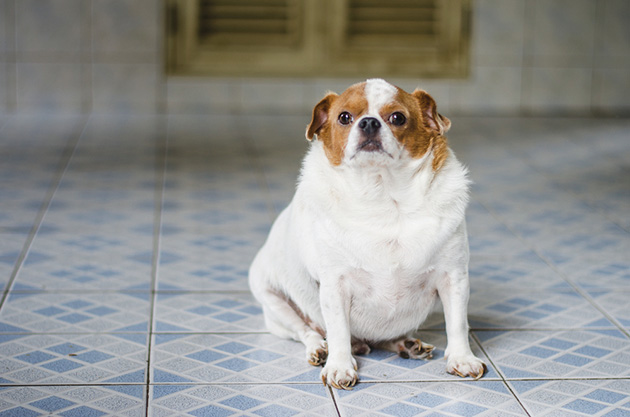By Kellie Tickner, Orchard Hills Veterinary Hospital Administrator
Obesity is the most common nutritional disorder in dogs and cats today, and it’s more serious than many pet owners realise. Recent figures show that around 41% of dogs and 32% of cats are considered obese. Even more alarming, overweight pets are likely to live two to five years less than those at a healthy weight. Just as in humans, obesity in pets primarily results from overeating and lack of exercise, which can have serious health consequences.
Why Pets Become Obese
Most pet obesity is caused by consuming more calories than are expended. Excess calories get stored as fat, gradually increasing body weight. Whilst factors like breed, age, and genetic traits may play a role, a pet’s diet and activity level are within an owner’s control and are essential for preventing weight gain.
Common Causes of Obesity in Pets:
• Excessive Calorie Intake: Overeating is the most direct cause of obesity.
• Human Snacks and Treats: A small plain biscuit for a dog, for example, is roughly the calorie equivalent of a hamburger for a human. Such treats add up quickly.
• Lack of Exercise: A sedentary lifestyle contributes significantly to weight gain.
• Medications: Certain drugs, like cortisone, can stimulate appetite.
• Decreased Energy Requirements: Spayed or neutered pets are more prone to weight gain due to hormonal changes that slow metabolism. Adjusting their diet and exercise can help them maintain a healthy weight.
Health Risks of Obesity
When a pet’s body fat exceeds 15% above its ideal weight, numerous health issues may start to emerge, including:
• Diabetes Mellitus
• Heart Disease and cardiovascular issues
• Joint Problems: Obesity increases the risk of arthritis and joint pain
• Increased Surgical Risks: Anaesthesia complications are more common in overweight pets
• Respiratory Problems
• Cancer
• Skin Disorders
• Decreased Quality of Life
Helping Your Pet Lose Weight
Start by evaluating your pet’s daily food intake, including treats and snacks. Remember that piece of sausage from dinner last night, it is equivalent to a person eating six donuts! Instead, consider healthier alternatives like carrots, cucumbers, apples, and even ice cubes for treats.
If you find it hard to feel your pet’s ribs or see a defined waist, or if they “waddle” when walking, these are signs they may be overweight. Addressing this early on can prevent long-term health problems and improve their overall quality of life.
Our team at Orchard Hills Veterinary Hospital can provide tailored advice to help your pet achieve a healthy weight. Call us at 02 4736 2027 for support and guidance on your pet’s weight-loss journey—let’s work toward a healthy summer body for your pet!






